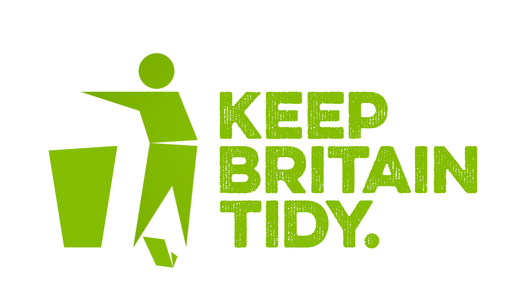
Operation High Street Clean-Up: £1.25m of new funding alongside tougher council powers
New Government action against litter on our high streets was set out today (6 August), with new funding to clean up our streets and fresh guidance for councils to tackle fast food litter.
More than 40 councils across the country have been awarded a total of £1.25 million to tackle chewing gum stains on our high streets this summer. This comes as new guidance is published which empowers councils to block new food takeaways from opening unless they install bins and fund clean-ups.
Sunderland, Exeter, Sevenoaks, Croydon and North East Lincolnshire are among the first winners of funding from the Government’s new Chewing Gum Task Force, established up by Defra and run by environmental charity Keep Britain Tidy with the aim of cleaning gum off pavements and putting in measures to stop it being dropped in the first place.
Estimates suggest the annual cost of cleaning up chewing gum for councils in the UK is about £7 million. Around 87% of England’s streets are stained with gum, according to Keep Britain Tidy.
This is the first tranche of investment worth up to £10 million from major chewing gum producers, including Mars Wrigley and Perfetti Van Melle, to tackle chewing gum litter over five years.
Environment Secretary George Eustice said:
“Chewing gum stains are a blight on our nation’s high streets and cleaning up after those who thoughtlessly drop their litter is a colossal waste of taxpayers’ money.
“By working with gum manufacturers to help councils clean up our cities and towns, we are doubling down on our efforts to regenerate high streets, boost local economies and level up communities across the country.”
Councils such as Leicester, Hull, Southend, Lewisham and Colchester will benefit from grants of up £20,000 to purchase cleaning equipment as well as receiving signage to warn people not to drop gum.
Previous pilots run by Mars Wrigley and not-for-profit Behaviour Change using this signage have reduced gum littering by up to 64%.
In addition, four councils - Belfast, Birmingham, Glasgow and Newport - will be given grants that pay for long-term monitoring of gum litter levels and the effects of intervention.
Larger grants of £70,000 have been granted to several council partnerships - including Bury and Bolton, Camden and Brent, and Nottingham and Derby.
Allison Ogden-Newton OBE, Chief Executive of Keep Britain Tidy, said:
“This is an exciting new opportunity for councils to tackle the ongoing problem of gum pollution.
“The grants will allow councils to clean up historic gum litter staining in our towns and cities, as well as taking action to prevent people littering in the first place.”
Ana Baptista, Corporate Affairs Director at Mars Wrigley UK, said:
“Mars Wrigley has invested in campaigns to tackle litter across the UK for many years. Through our partnership with Behaviour Change we have developed interventions proven to reduce gum littering which have already been used by over 100 councils.
“We are delighted to see these deployed as part of the Chewing Gum Task Force Grant Scheme and look forward to having many more councils on board.”
This forms part the Government’s new strategy to support the evolution and regeneration of high streets across the country, which includes 15 Town Deals totalling £335 million to fund community regeneration projects, the transformation of derelict buildings, and communities being given the chance to own local pubs, theatres, sports grounds and corner shops.
It comes on the same day the Government published new guidance to help empower councils to put controls on litter when considering planning applications for takeaway food businesses.
Figures show that fast food items are the fourth most common type of litter found on UK high streets* and English Local Planning Authorities will now have advice on what actions they can take when considering applications for new hot food takeaways.
This can include seeking details on proposals and imposing conditions to install bins, litter picking and advisory signage to ensure developments for new takeaway food do not increase the impact of litter on local communities.
Littering is a criminal offence, and the UK Government has already bolstered local authorities enforcement powers by increasing the on-the-spot penalties for littering to £150 in England. Councils can also take offenders to court, which can result in a fine of up to £2,500 if convicted.
Through the Environment Act, the Government will be able to ensure that enforcement powers are used with a high degree of professionalism, whether by council staff or private contractors, and place our improved enforcement guidance on a firm statutory footing.
This forms part of wider government action to tackle litter and protect our environment. We plan to launch a deposit return schemes for drinks containers, extended producer responsibility for packaging and consistent recycling collections which will transform the way we deal with our rubbish.



